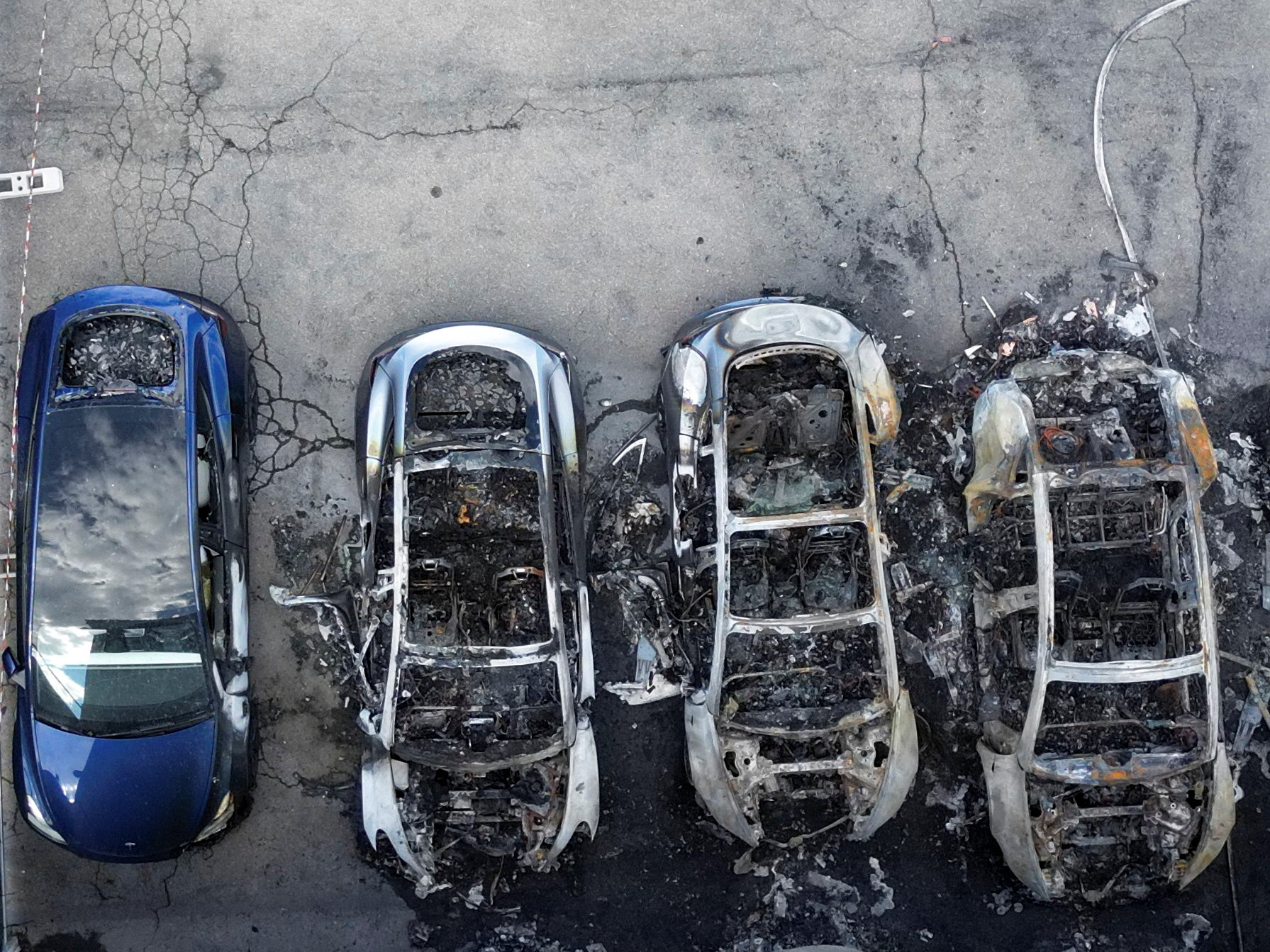As attacks against Tesla owners, dealerships, and charging stations escalate nationwide, authorities are facing growing calls to crack down on what many—including Elon Musk—have labeled domestic terrorism. In an interview on AM 560’s Chicago’s Morning Answer, Kyle Shideler, Director of Homeland Security and Counterterrorism at the Center for Security Policy, detailed how the far-left’s violent fringe is weaponizing ideology and targeting civilians—while elected officials and media figures remain largely silent.
“This is obviously terrorism,” Shideler said. “Most people have a common-sense understanding of that—and they’re right. Firebombing a car dealership for political purposes? That’s terrorism.”
These comments come after several incidents of targeted vandalism and arson at Tesla facilities—part of a campaign by leftist extremists who view Elon Musk’s alignment with President Trump as justification for violent retaliation. In one notable case, a suspect was arrested after five separate trips to a grocery store in Pennsylvania, where he allegedly planted nails under a Trump-supporting employee’s car.
Federal law complicates these cases. According to Shideler, “Federal terrorism laws don’t operate on common sense. They require a series of predicate crimes to be proven in court—like an effect on interstate commerce or an attack on a government building.”
Shideler warned that prosecuting these cases through the Department of Justice may be ineffective due to a lack of Trump-appointed personnel and the potential for legal obstacles from sympathetic judges. Instead, he urged state-level prosecutors to take the lead.
“In places like Texas, where you have strong state-level terrorism and racketeering statutes, prosecutors could bring serious charges—not just against individuals who commit the violence, but also against those who fund and organize it.”
That’s especially relevant as Musk and others, including investigative journalist Asra Nomani, have started connecting the dots between militant protest groups and their financial backers. Musk has vowed to pursue not just the vandals, but those underwriting their efforts.
“Left-wing radicals operate differently than traditional criminal organizations,” Shideler explained. “They build from the bottom up, with autonomous cells and loosely coordinated tactics. But sometimes they slip—and when they do, that’s when you can tie money to motive.”
He pointed to Georgia’s ongoing case against Stop Cop City activists as a model, where prosecutors allege that nonprofit groups were reimbursing violent protesters and supplying them with ammunition—an example of where state and local authorities succeeded where federal prosecutors might not.
As for how long these Tesla-related attacks might continue, Shideler had a sobering prediction: “As long as they’re effective. The currency of terrorism is attention, and these acts are getting plenty of it.”
He also noted that this strategy of violent protest is not isolated to car dealerships. Shideler drew a parallel to the killing of a healthcare CEO by Luigi Manganiello, an avowed progressive activist who has since been elevated to near-martyr status by some on the left. Media outlets and activists have already begun floating legislation named in Manganiello’s honor—despite the fact that he is a confessed assassin.
“It’s terrorism working,” Shideler said bluntly. “You now have politicians proposing policy in direct response to an act of violence. That’s the end goal.”
He also had strong words for the cultural double standard surrounding these cases. “If the ideological roles were reversed—if these were right-wing extremists attacking left-leaning targets—you’d hear nothing else on CNN or MSNBC.”
As for what can be done, Shideler emphasized the importance of state-level action and public vigilance.
“Prosecutors need to send a message—not just to the people throwing Molotov cocktails, but to those signing the checks. And they need to do it now.”





